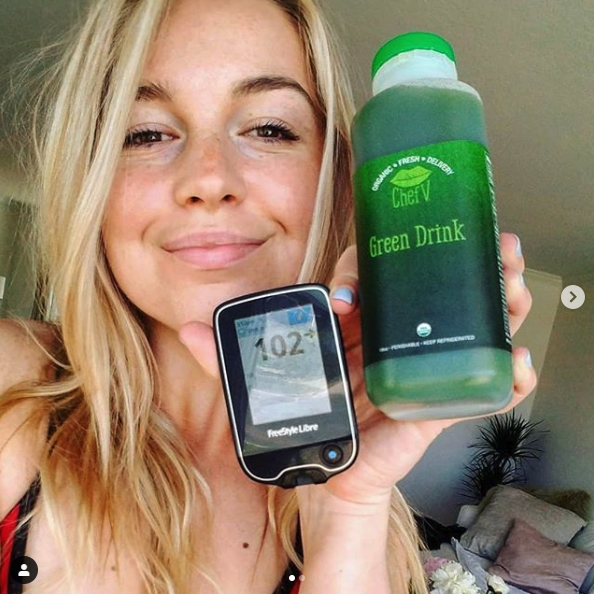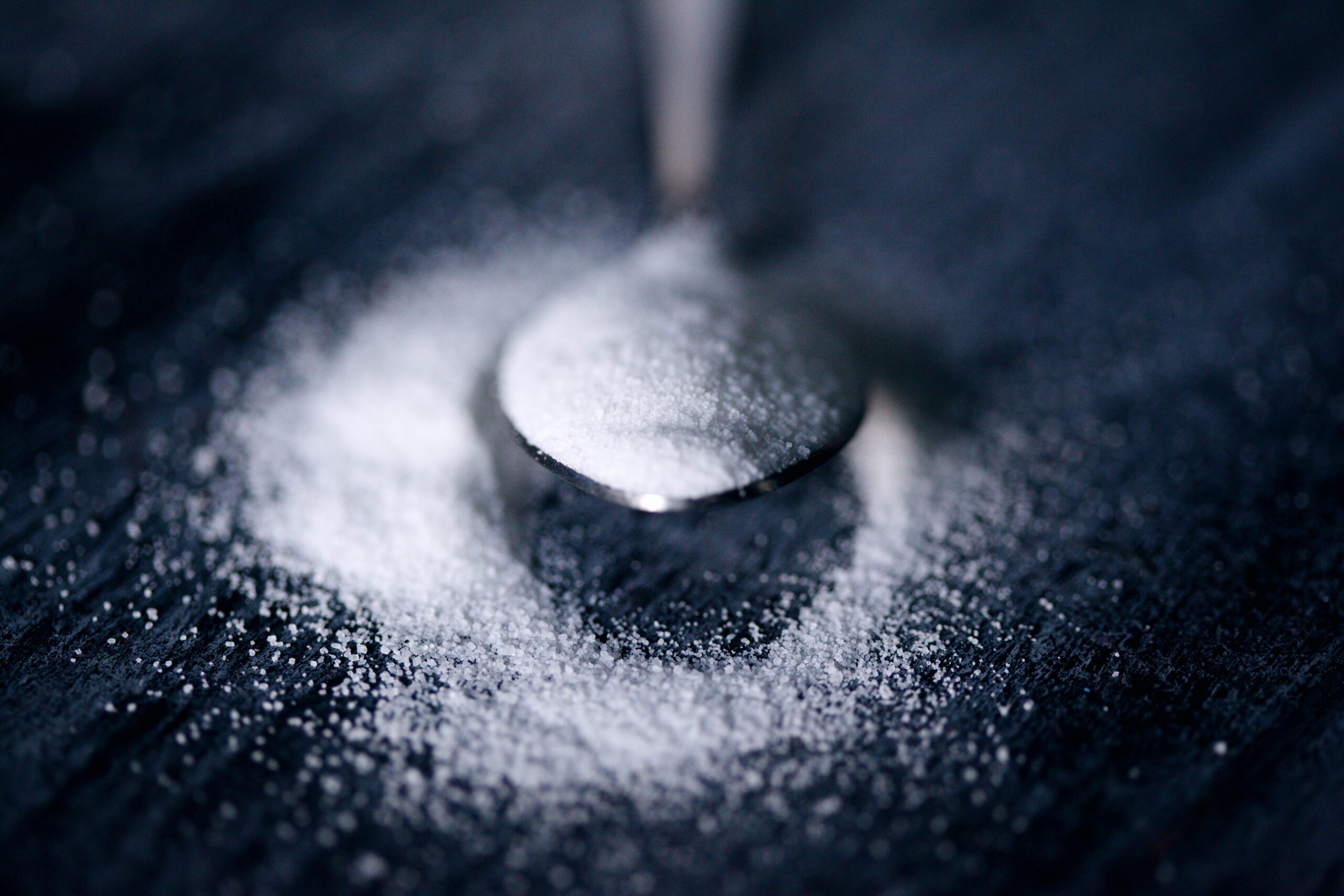
Whitney Louis is one customer living with diabetes who credits Green Drink with helping manage her A1C levels. Take a look at Whitney’s Instagram profile. (Her tongue-in-cheek profile name: HappyPancreas).
“Diabetes makes it super hard to follow cleanses because many out there are juice based (i.e. 100% sugar). This requires a lot of [monitoring], and increases the variability in our blood sugar numbers,” says Whitney.
Understanding the Risk Factors of Diabetes
When discussing reasons for tackling a juice cleanse (from a 3 day juice cleanse to a 21 day detox), many people bring up the desire to get their blood sugar under control. And one major reason for wanting to get blood sugar levels under control is worries around diabetes. But what really are the risk factors for diabetes? And how can you mitigate them? Is diabetes something everyone should worry about? This piece will cover the basics of diabetes.
What Causes Diabetes?
To understand what causes diabetes, there are a few concepts that it’s helpful to cover first. Here are the essentials to understand before we start talking about diabetic cleanses.
Glucose
First things first – glucose. This substance is a valuable source of energy for your body, used in the cells of your tissues and muscles. It’s also, as many of you already know, a sugar. Since it’s the primary sugar found in your blood, it’s often called “blood sugar”. You can get glucose directly from some foods that you eat or beverages that you drink. Your liver stores glucose but can also break down other substances to create glucose. No matter how you get it, glucose travels around your body in your bloodstream.
Insulin
Of course, glucose needs to actually enter into your cells to give them energy. Just floating around in your bloodstream isn’t going to do anything for you. So that’s where insulin comes in. Insulin is a hormone your body produces in your pancreas. It’s the key that helps “unlock” your cells to allow glucose to enter. Without insulin giving the right signals, your cells won’t absorb glucose. Insulin doesn’t just activate glucose. It’s also the substance that helps determine if you have too much glucose – in this case, it helps your liver know that it’s time to start storing glucose instead of making it.
Types of Diabetes
Now that we know about glucose and insulin, we can get into what actually causes diabetes. Generally having diabetes means something isn’t working correctly with how your body makes or uses insulin. However, this takes two very distinct forms: Type 1 and Type 2 diabetes. Before you can get started on diabetic cleanses, you’ll need to know what’s causing your diabetes.
Type 1 Diabetes
Type 1 Diabetes is an autoimmune condition of which we’re still unsure of the causes. Essentially, people with type 1 diabetes have immune systems that attack the helpful insulin-producing cells in the pancreas. This impacts their ability to produce insulin, leading to an inability to manage blood sugar levels. Without insulin “unlocking” your cells, glucose simply stays in your blood, unabsorbed.
Type 2 Diabetes
Type 2 Diabetics can still produce insulin as usual. However, the cells of Type 2 Diabetics have become resistant to insulin. This means that despite making insulin, their bodies ignore the signals that the insulin is giving out. This leads to the overproduction of insulin, and eventually, your pancreas burns out its ability to create insulin. Precisely what causes Type 2 Diabetes isn’t known for sure, but it is linked to genetic disposition, overconsumption of sugar, and being overweight.

Additional Resources on Diabetes
Chef V Clinically Proven To Lower A1C Blood Sugar Levels
Is It Safe For People With Type 1 Diabetes To Do A Cleanse?
Chef V’s Perfect “Prescription” For Eating Healthy While Taking Ozempic
What Does Diabetes Mean For Me?
Symptoms of diabetes vary between types, severity, and individuals. Typically, you can expect increased thirst and hunger fatigue, irritability, vision loss, and a weakened immune system. You may also suffer from a frequent need to urinate and the presence of ketones in your urine.
What are the Risk Factors?
As mentioned, the risk factors for diabetes aren’t fully understood due to the influence that genetics plays. It seems that certain people genetically inherit a greater risk of getting diabetes. This means that a family history of getting diabetes is a common risk factor and not one you can really control. Some risk factors go beyond simple genetics as far as type 2 diabetes goes.
Lack of exercise is one risk fact. This is because exercise is a great way to burn glucose in your bloodstream and make your cells more sensitive to insulin. It also helps you lose weight, which is another risk factor – higher amounts of fatty tissue have been linked to greater resistance to insulin. Similarly, high blood pressure and high cholesterol have also been linked both to lack of exercise and weight and difficulties in processing insulin.
Age could also be considered a factor simply because it is often challenging to manage cholesterol, blood pressure, activity, and weight as one ages. What you should take away from these risk factors is that there is a complex web of health concerns that can affect your risks for diabetes. Essentially, there isn’t a single factor that “causes” diabetes. Instead, there are a lot of health concerns you should be looking out for that, if allowed to get too severe, can start to snowball and compound on each other. So our best advice? Stay active, and do your best to keep your blood sugar and weight levels under control. This helps your body absorb glucose as it was supposed to and not put your poor pancreas under too much stress.
Managing Diabetes
Those who already have diabetes know that they will often need to carefully check blood sugar levels and sometimes take doses of insulin to give their body a helping hand in dealing with that glucose. However, there are plenty of ways to take control of your blood sugar more directly.
Staying hydrated is one essential tactic, as is making sure that you avoid drinks and foods that are very high in sugar. You want to ensure that you get enough to eat while keeping those meals healthy. You want to be getting enough exercise without going overboard. Many wonder if there is a safe detox for people with diabetes. A diabetic cleanse with a green drink seems like a great way to get the water and nutrients you need – but could lead to low blood sugar. A good diabetic cleanse needs to be short and non-intense. It should help you cut sugar cravings to give you the power over your blood sugar.
A Chef V detox is a perfect diabetic cleanse, especially our 3-day juice cleanse. Our green drink is excellent for getting your sugar cravings under control, and our cleanse comes with detox smoothies and detox soups to help you keep your energy and blood sugar levels stable. This lets you lose weight in a safe and healthy manner.